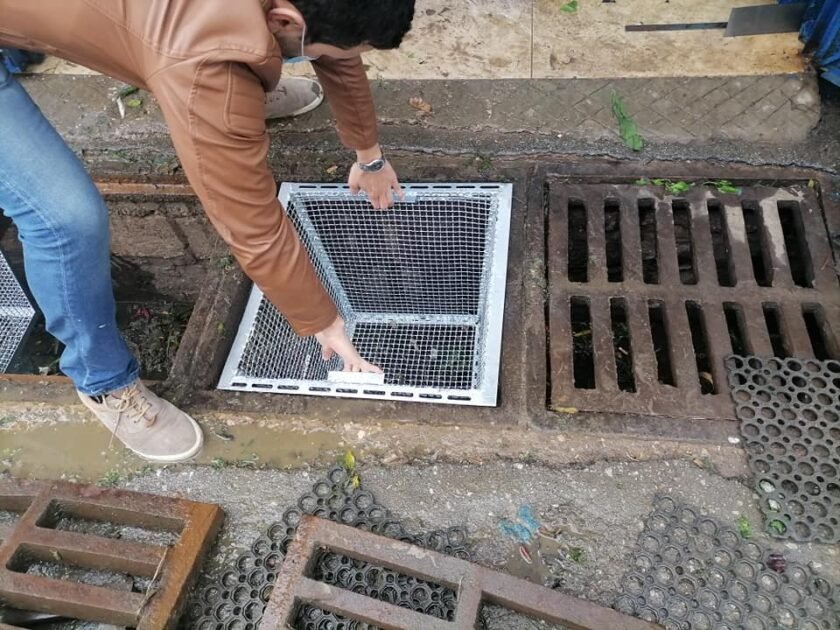(TAP/Mohamed Neji Ben Gamra) – The DRÄXLMAIER El Jem seeks to achieve success and reach good performance and efficiency of workers by providing them with optimum conditions, Sabri Brahim, Communication Manager of the German Company said.
He added that in order to reach this profitable and sustainable performance, the company has established a set of strategies that give workers a strong motivation to keep the same level of enthusiasm and skills.
Among these rules the newly hired workers or graduates are provided an efficient theoretical and practical training on an equal basis to avoid the shock that a worker can face when he starts work, Brahim told a group of journalists from TAP visiting the company on Monday afternoon.
The company has also become a partner in addition to being an investor, Brahim said, underlining that the DRÄXLMAIER group sponsors cultural events such as El Jem classical music festival as well as activities in schools notably in the northwestern regions around Siliana by providing assistance to schools and pupils along with a partnership with universities which is a new concept of partnership and development.
He cited last year’s experience when the company recruited new graduates who came to the factory not to work but to learn and be coached so that they have the opportunity to know about the professional circle. A year later they were integrated in the professional sphere.
The company provides the experience that is needed for the employers for a better efficiency.
In another connection, the communication manager spoke of an experience that took place in 2013 with the vocational training centres as part of a Tunisian-German cooperation which consists in co-developing and co-training young people holders of baccalaureate who are selected on the basis of criteria set by the company by providing them a 3-year training within the company called alternating training to be recruited later after that period.
The DRÄXLMAIER Group has a set of values which form its corporate culture and that are the guidelines of its organisational model as well as its management and production processes, Sabri Brahim said.
In this respect, innovation is one of the fundamental pillars of the Group’s culture. The spirit of creation is a way to guarantee the constant development of its activity, which today has the motto “creating character” for each DRÄXLMAIER product, he went on saying.
He underlined that individual mobility is also one of the foundations of DRÄXLMAIER culture. With more than 60 production sites in 20 countries covering 5 continents, DRÄXLMAIER provides the mobility opportunity that gives its positive effect which is the strength of its human capital.
The main and constant focus of DRÄXLMAIER is on the human element and its contribution to the growth of the Group.
The group shares with the employees intrinsic values allowing them to better share their experiences and work together around the world, Brahim said in conclusion.
The German group DRÄXLMAIER is a German automotive supplier specialising in automotive wiring and lining since 1958, the date of its creation. It develops, manufactures and sells electrical and interior systems to premium manufacturers such as BMW, Mercedes-Benz, Audi and Porsche, Brahim Said
Created in 2011, just after the Revolution, DRÄXLMAIER Eljem site is the latest of the Group’s factories in Tunisia.
Located 60 km from Sousse to Sfax and 200 km from Tunis, the site is composed of two factories, SATE 1 & 2, and employs some 1,700 people.
World famous for its Roman Amphitheater, and its international festival of classical music the Tunisian city of Eljem is now also home to one of the largest factories in the region.
Giving a brief history of the Group, Sabri Brahem said that after having realised the very first cable harness order for the German car brand Goggomobil in 1958, and later gone on the branch of premium car parts manufacturers by winning its first contract with BMW in 1966, DRÄXLMAIER established its first production site outside Germany and chose Tunisia as a production site in Sousse in 1974 before expanding its presence into Africa, America and Europe.
Sousse was the basis of the current global presence and international connectivity of the DRÄXLMAIER Group given the privileged place of Tunisia for the German group.
Eljem site is the last born site in the group in Tunisia, he noted.
He said the assembly activity of small electronic components and cable bundles culminated in the 1990 “Just In Time” project for the production of electric modules for BMW.
In 1991 the production of interior articles was introduced for the first time in Tunisia in Ksibet-Sousse. This important expansion of activity led to the creation of a new production unit in Zaouiet-Sousse.
TunisianMonitorOnline (TAP)




